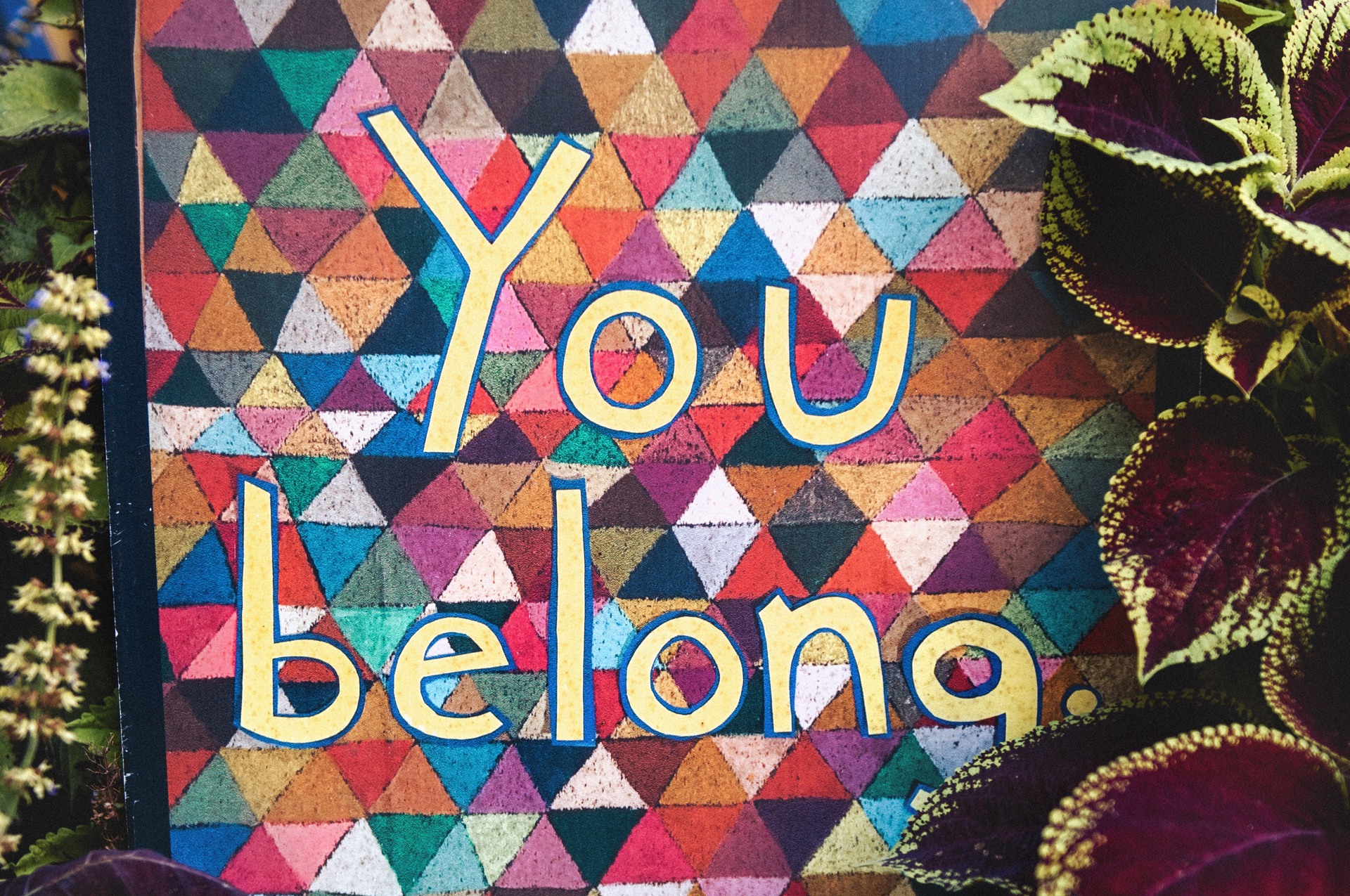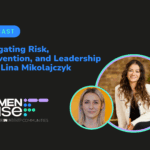Norma Brescemi speaks to Kate Hodsdon.
In this report, we were keen to know how start-ups approached social mobility and inclusivity, as well as established organisations. We had the most inspiring conversation with Norma Brescemi, the Managing Director of Kanso, a UK-based, boutique commercial cleaning company.
Tell us about your vision and mission for Kanso.
Kanso delivers an ethical, innovative and world class cleaning service thanks to the care and motivation of our wonderful team. They do more than just clean offices – they ensure that the office is a happy place to work and in ship-shape order, so our clients can focus on getting work done with zero stress. It’s about building exceptional relationships with our clients through a level of service that is considered, and consistent.
Our vision is to be a people centric organisation – inside and out – that puts customer experience at the heart of our business. We recognise that we have a road to travel and collectively push ourselves to improve every department so our staff and our clients can shine.
What are your values?
We ensure that people feel valued not only through the work they do but the tools they are given to do the job. We train them properly and to a high standard, so they feel proud they are bringing their best self to work. They must feel a continuous thread between who they are and how they show up for their job.
Health is huge for us. We offer health benefits, but also financial support. We’ve had a few staff come to us and say they’re struggling to pay their rent – especially when they’re here working and sending money back to their native homeland to support family.
At times, their stories are heartbreaking to hear, but how could we not look after those who literally would be homeless without us putting our money where our mouth is? Can we do that for everyone? No. By paying above and beyond the minimum wage, and offering a roster of benefits, it is rare that our staff are faced with this. However, we have built into our operating model enough resources to make sure that when it does come up, we are there for them.
How do these values translate into the everyday running of your business?
It’s great when you’re a start-up with a small team because there’s an opportunity to collaborate on everything, from the vision to the values, and how that comes to life through operations. However, very quickly that evolves because your ambitions grow when you hit certain milestones. Therefore, the ways in which those values then develop also needs to evolve. I see values as a flexible framework, but not a fixture.
How does your social mobility strategy and inclusive culture shape your client relationships?
My aspiration for the business is to be the best cleaning service in the market, in terms of the service that we deliver to our clients.
So many large organisations have a marketing department that creates their value statements, so they look and sound amazing. Yet, when you’re working there, those words don’t bear any resemblance to what you experience when you’re working in a support role.
This cultural misalignment is a red flag for any leader – if staff don’t feel and experience what you stand for as a business, then what’s the point of having clever sounding values? That’s why our communications speak first and foremost to our team, not our clients. They must reflect what is already there, not create a marketing message for clients.
How does transparency play into your culture?
I hope that at Kanso it’s not feared, but seen as openness and a way of sharing. In practice, this means our values evolve, and we notify the staff immediately about everything from the services we are bringing in, to the new benefits we plan to offer. Often this type of change is known by the senior management team for a while, but our transparent way of working means we openly share developments with every single person in the business. Transparency is our foundation stone and one that strengthens our culture.
For any business, but especially with a start-up, it’s about bringing people on the journey and making sure that they understand the part they play in it.
Our aspiration is to be the best cleaning company bar none in the market. What does being ‘best’ mean in real terms? To us, it means we make sure that we exceed our client’s expectations at every turn; and that must start and end by empowering our people and giving them what they truly need to be successful.
How are you empowering your people in real terms?
Cleaning professionals come from many walks of life, and often from socially challenging backgrounds. Education, socioeconomic and socio-cultural inequalities historically set up what is seen by many as a divide. Those who clean are often perceived as invisible – they’re there cleaning up after others doing important work – and are there to serve as part of their job, but not at Kanso.
They say you should be the change you want to see. So, for me, I refuse to be anything other than completely inclusive and fair, for how else will I be someone who enables that change to happen?
How do you incentivise your people?
Everyone benefits from our benefits. Whether cleaners are part-time or full-time staff, on three days a week or five days a week, it makes no difference. The benefits are the same.
If they are ill or somebody gets injured at work, or they fall ill at work, or on their way to work, or on their way home from work, they are covered. I took out an enormous insurance policy to ensure that I can pay my staff 75% of their wages for up to 104 weeks. This is groundbreaking for cleaners who are usually excluded from care at work.
My overriding aspiration is to ensure that we’re a partnership, that runs in the same way in which John Lewis does, for example. We’re not there yet, but it’s my mission to get us to a place where every single one of our staff has a shareholding in the business, within the next two years.
How are you being the change that you want to see at Kanso?
It starts with an attitude that embraces equality and is founded less on ‘why’ and more on, ‘why not?’ Why would our cleaning professionals not deserve the same levels of reward, benefits, and personal development as any other professional? This is a powerful question that challenges any organisation’s values.
We give all our staff a plethora of benefits in just the same way that established, highly profitable organisations give their staff. We don’t allocate these in a way that flows top down, they are offered to everyone – from cleaning professionals to our management team.
We don’t have to advertise.
Our growth is fuelled by word-of-mouth referrals. When we do need to advertise, we don’t use the usual jobs platforms, we use niche community hubs, often where our cleaners are members. This helps us to consistently hire people who align with our values.
I brought on board a non-exec Director (Edward Murray) not that long ago and already he’s getting calls from potential clients saying, “I’ve heard about the way you work – can we meet for a coffee?” This is remarkable for a sector that is almost always driven by cutting costs to win contracts. It’s not even clients saying this, it’s an array of people, from marketing to cleaning to operations. As MD, this is what living by our values offers as a return.
How does your culture and commitment to inclusivity affect the clients you work with?
It’s simple. I’ve turned away more clients than I have right now. As a leader, you’ve got to put your head where your heart is and be brave. I prefer not to work with clients when they don’t align with our values. How does that pan out? Well, I’m sometimes told, “you’re too expensive for us”, to which I reply, “that’s absolutely fine.” And then, after scouring the market, many come back to me and end up becoming clients because they can feel the value in the way we look after our staff.
We stick to our guns and because we do, we have a motivated team of people who love what they do. Right now, my biggest challenge is giving jobs to the waiting list of cleaning professionals who want to come and work with us. This is such a privilege, and far from the industry norm.
What does inclusivity mean to you at Kanso?
When we were hiring someone who self-identified as non-gender specific, our hiring manager struggled with a system that didn’t account for this, but wanted to know how we could ensure that they felt able to be themselves at work – from their uniform to the way in which they were referred by clients and our staff. This is how unconscious bias and exclusivity in technology can make driving inclusive change a challenge. All I asked was, “did you have a good interview?” to which she said “yes! I loved the person”.
It’s not what that person stands for – it’s who that person is. It’s their personality. It’s what they can bring and it’s their enthusiasm for the sector. This is how culture drives operations, and not the other way around. We are adapting our systems to make sure that there are no silos; there is no segmentation in how our staff show up, or in what they need. All that matters are how we connect and can live our values. This is our Kanso DNA.
How 360-degree care works when times are tough
My personal driver is to protect our people holistically. That’s a big claim so let me break it down in real terms. One of our cleaning team faced a domestic difficulty that meant they needed to move out of their home very quickly. They didn’t have money to pay for a rental deposit and had a child. So, we gave her money for the deposit, and agreed a tiny repayment as part of the terms. But quite frankly, if they chose to leave us in the next two years and there was money outstanding, it wouldn’t matter, because it would be a contribution to their ability to live the life they deserved, as an amazing member of our team. We’re not a bank, however, and couldn’t do that for everybody.
Their gratitude I found humbling, because I realised that it’s not the norm to feel comfortable enough to come to their employer and ask for help when they were going through a living hell personally.
Embracing refugees
These are people that have desperately difficult personal circumstances, and we had one who when I think about it, breaks my heart every single day. It’s often the women and their children who escape. They have lost their sons, fathers, grandfathers that have died in the Ukrainian War. They have experienced trauma and been displaced; often not speaking English fully and yet with a work ethic that is simply staggering. On top of their grief, they are here to be part of their new future. Sleeves up, hearts open, and desperate to begin again.
As well as financial assistance, which for us is an ethical given, our health insurance means they have access to mental health support – and in their own language. We invest a lot of personal time in making sure those who have gone through so much already, have a place where they feel safe at work, through the way they are treated and the practical benefits we offer. It’s the absolute minimum that we can offer our people.
We’re part of our client family
Our staff are known to all our clients’ staff because they work in-house. One of the fastest growing pension funds in the UK is one of our clients, along with the fastest growing digital first banks. When we go and see them, they see our staff as part of their own staff, with complete integration. That’s true value to them, and where our mission is being realised.
There is no us; there is no them; there is only we; and the reason why I wake up every morning knowing we can be the change that we want to see because we are all living it as one. For me, they are the true heroes at Kanso – as MD, I merely give them the means to thrive.
Share this:




